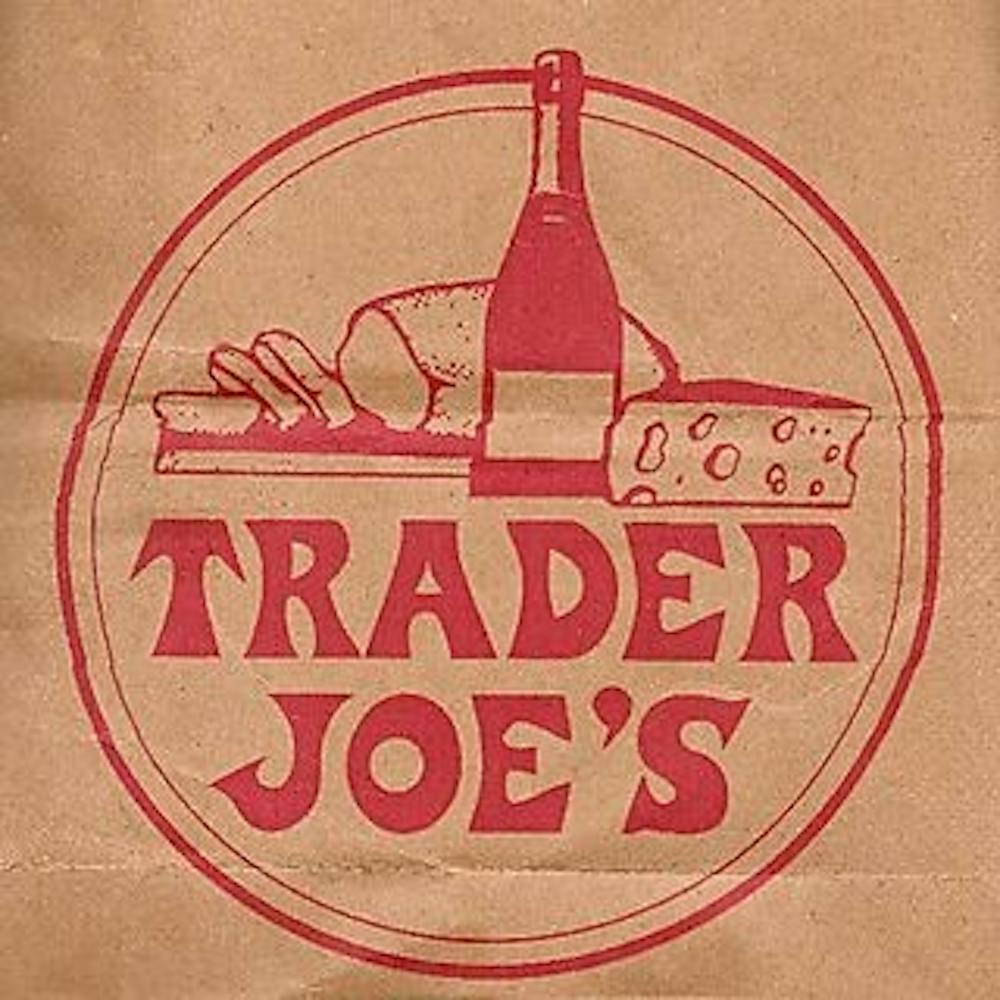Step foot in a Trader Joe’s and you’ll likely find yourself in the middle of shopping rush hour like in any other grocery store. While this may seem like a detriment to consumer satisfaction, Trader Joe’s accepts and even embraces the chaos. From the densely packed store size and bright sky blue walls embellished with vintage decor to complimentary coffee and free samples, Trader Joe’s has optimized every part of the shopping experience. By investing in the customer through their eccentric persona, assortment of unconventional products, and cult status, they stand out from the average Walmart or Aldi. But sometimes, their catering to the customer goes one step too far. When it comes to the labeling of ethnic foods, Trader Joe’s prioritizes white audiences and encourages the use of misleading cultural stereotypes.
Instead of being sold under the “Trader Joe’s” label, ethnic foods have different culturally stereotypical names replacing Joe: Trader Ming for Chinese, Trader Joe San for Japanese, and Trader Jóse for Mexican. The company has done this for decades, but they have only recently come under fire for this convention. A high schooler’s petition with thousands of signatures called for Trader Joe’s to change the way they promoted products because “it exoticizes other cultures” and “perpetuates harmful stereotypes.”
Trader Joe’s isn’t the first corporation that has recently had to deal with possible name changes either. The Pearl Milling Company, originally known as Aunt Jemima, retitled their famous syrup in an effort to “make progress toward racial equality.” Outside of the food industry, the Washington Football Team retired the name Redskins when Native American activists and sponsors pressured the NFL and to remove the callous label. Many of these organizations began their respective changes following the murder of George Floyd and subsequent protests, and the Trader Joe’s petition falls under a similar timeline. So why is Trader Joe’s so reluctant to alter their products in comparison?
Trader Joe’s actually promised to adjust their marketing when the petition first gained traction. Their initial response acknowledged the effect that their labeling might have had and pledged to finish repackaging “a small number of products” after “a number of the products [had] already been changed.” But in a sudden announcement just two weeks later, Trader Joe’s reversed their decision and described their naming as “fun” and as an “appreciation for other cultures.” There’s not much information that supports their backtrack, but it doesn’t look good for a company that boasts their “unbeatable customer experience.” Instead, their puzzling revocation comes across as shocking and frustrating.
As a Chinese American, I am turned off from patronizing Trader Joe's with their insistence on keeping these insensitive labels. I find some of the ways Trader Joe’s markets their items to be bizarrely comedic. One item in particular, the Philly Cheesesteak Bao Buns, is a knockoff of Chinese steamed buns, also known as baozi. Normally filled with pork and eaten with soy sauce, these delicious buns have now been Americanized with the inclusion of beef, peppers, and even cheese.
Another item that fails at accurately capturing Chinese culture is the Chinese Inspired Salad. There’s nothing really “Chinese inspired” about it when chicken, lettuce, crispy noodles, and snow peas are the only ingredients. Most of these ingredients can be found in other cuisines all over the world. Additionally, salad is rarely eaten in Chinese cuisine, so the label seems entirely arbitrary in order to sell it for exoticness. Even with their abundant international offerings, Trader Joe’s still caters to a white audience who might buy some of these inauthentic items and have a “Chinese night.” It’s ironic that Trader Joe’s continues to use the “Trader Ming’s” label for Chinese food when the food itself isn’t even genuinely Chinese.
If Trader Joe’s wants to change for the better, they need to cease their use of unnecessary labeling and revamp their international selection. I’m glad to see Trader Joe’s offer some form of “bao buns,” which can be hard to find in most Chinese restaurants, but their blatant whitewashing of the original inspiration is not a step in the right direction. There’s no reason why all tomato sauces need to be labeled as "Trader Giotto's" or taco shells as "Trader Jose’s" for the sake of being unconventional and trendy. Until then, their evident appeal to white sensibilities will go unresolved.
As college students, we love Trader Joe’s for their convenience, customer service, and relatively cheap and healthy food. But we also have a responsibility to rethink our support for companies who have not only acknowledged but repeated and perpetuated their insensitive cultural appropriation. When the chain calls their labeling “an appreciation for other cultures,” it dismisses the voices that have called for them to just do the bare minimum and classify everything as “Trader Joe’s.” This isn’t “fun” product marketing—it’s an inconsiderate and overtly disparaging act that sustains the ongoing norm of whiteness.

